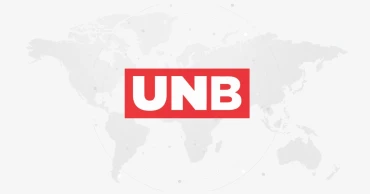Equality of opportunity
Build a more equal, inclusive world: Hasina
Prime Minister Sheikh Hasina has said bold and concrete actions need to be taken at the global level with multilateral cooperation to fulfill the pledge to build a more equal and inclusive world as no single country can tackle this crisis alone.
“No single country can tackle this crisis alone. We need bold and concrete actions at the global level. We need multilateral cooperation in fulfilling our promises of UN75 Declaration to build a more equal and inclusive world,” she said.
The Prime Minister said this in a prerecorded message at the “Delivering the UN Common Agenda: Action to Achieve Equality and Inclusion” organised by Swedish Mission to the UN on Thursday.
Read: Want actions, not words: Hasina to global community over Rohingya crisis
In her speech, Hasina highlighted six specific points in this regard.
The points are: Eliminating “vaccines divides” between the rich and the poor; presenting a new paradigm that will address inequality across the world in a holistic manner as it has deep relations with the SDGs; addressing the special financing needs of the most vulnerable countries, which include the LDCs, climate vulnerable countries; addressing the vulnerabilities of migrants and people on the move; bridging the stark “digital divides” to ensure equal opportunities for all, and create more opportunities for women and girls to act as a real “change makers”.
The Prime Minister said the Secretary General’s Report on “Our Common Agenda” provides an alarming picture of the growing inequality across the world, and the Covid-19 pandemic has hit the poorest and the most vulnerable countries the hardest. “Our decades of development gains on reducing poverty, inequality and exclusion are rapidly sliding back.”
Read: Declare Covid vaccines as 'global public good': Hasina
Hasina said the Constitution of Bangladesh ensures “Equality of opportunity to all citizens”.
“We’ve placed the most vulnerable section of our society at the centre of our efforts. And that include, women, the ultra-poor, ethnic minorities, people with disabilities and other vulnerable groups.”
4 years ago

